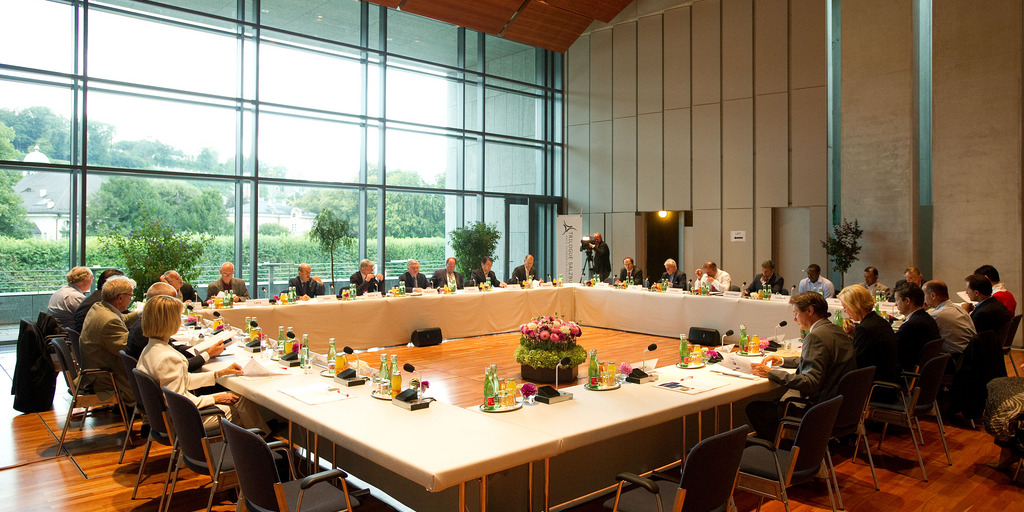The 2011 Salzburg Trilogue offers a forum for high-ranking experts from the spheres of policy, civil society and culture to discuss new approaches to global governance. In large part, the most recent global crises can be traced back to a failure to respect certain fiscal and environmental boundaries, as well as to inappropriate regulatory structures. As Pascal Lamy, director-general of the World Trade Organization, pointed out at the 2010 Salzburg Trilogue, ignoring personal and public debt limits is just as ethically questionable as is the unchecked exploitation of our natural resources. Regulations that reflect the interests of individual nations are of only limited value in promoting the well-being of the global community. Overall economic conditions are unduly influenced by individual interests – at the expense of the common good and future generations. New approaches to global governance are essential to avoid a fundamental breakdown of existing systems.
This year’s Salzburg Trilogue is based on the following assumption: Any effort to bring about real change in our global economic, financial and social order will be doomed to failure unless we succeed in clarifying, in universal terms, the goals and social norms that can guide global development and help to resolve conflicts between the interests of individuals, society and the environment. This discussion is taking place at a time when more and more decisions affecting the global community will have to be made. In 2012, further negotiations of the DOHA Round will be taking place and two global sustainability projects are up for review as well: the follow-up treaty to the Kyoto Protocol and the Millennium Development Goals. A breakthrough in these international agreements appears unlikely, however. The assumption is that if such international agreements are to be acceptable to all countries, it is essential to define and implement a normative model for the global community’s pathway to future development.
The Salzburg Trilogue will be held from August 18 to 20, 2011. Among the high-ranking participants who will come together to discuss the challenges facing the world economy, global governance and approaches to formulating a charter of universally shared objectives and values are the following: Pascal Lamy of the WTO, Ian Johnson of the Club of Rome, former Swedish Foreign Minister Jan Eliasson, and six current foreign ministers from the Black Sea region.

HOPI-MEDIA
Challenges for Global Governance
New approaches to achieving a sustainable world economy - Do we need a “domestic policy” for our globalized world?


